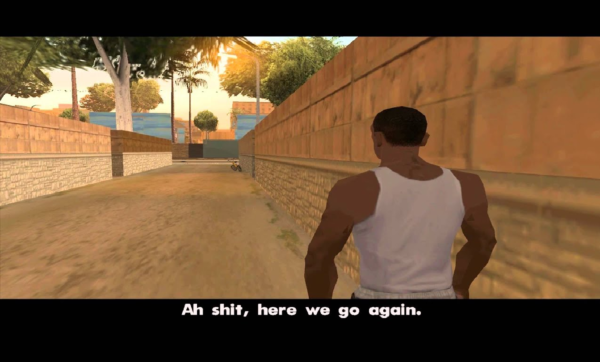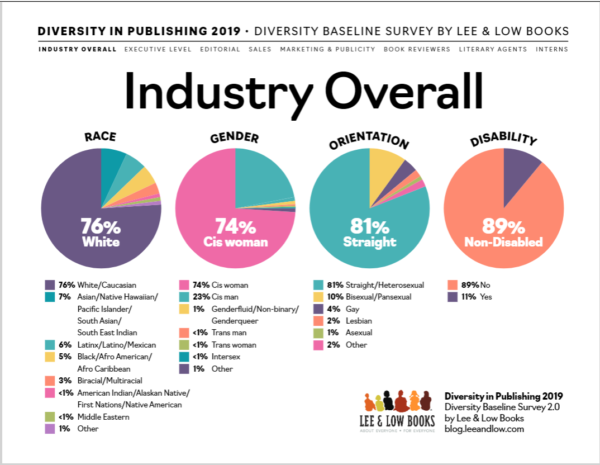I don’t usually engage in conversations about individual books as the topic du jour is almost always something I haven’t read yet or have no personal interest in, but the ongoing conversation around American Dirt sucked me in because it was such a glaring symptom of the industry’s underlying illness I’ve raged about many, many—oh so many, many—times. Against my better judgement, it’s dominated my own Twitter feed for nearly two weeks now, and all indications are it’s going to remain a hot topic for a while longer—for better and worse.
Also against my better judgement, I decided to consolidate my thoughts into this unexpectedly long, but hopefully coherent, post. Apologies in advance!
If you aren’t up to speed on the controversy, I highly recommend reading these six things for a pretty comprehensive overview of the situation to-date:
- Pendeja, You Ain’t Steinbeck: My Bronca with Fake-Ass Social Justice Literature
- A Mother and Son, Fleeing for Their Lives Over Treacherous Terrain
- American Dirt Is A Problem. So What’s The Solution?
- Digging Into ‘American Dirt’
- Statement from Bob Miller (President & Publisher, Flatiron Books) regarding AMERICAN DIRT
- Where is the Diversity in Publishing? The 2019 Diversity Baseline Survey Results
I don’t have any particular interest in the book itself—which by most accounts is a pretty standard thriller novel with all of the lazy stereotypes and written-for-film-adaptation tropes the best and worst of the genre has to offer. The story of how it came to be positioned as A Very Important Novel, and one of Macmillan’s big books of the season is a compelling one, though, revealing the many systemic issues plaguing an industry that continues to struggle with diversity and changing consumer habits, despite so many “commitments” and “initiatives” to address both.
Prioritizing the White Gaze
I’m no literary critic so I try to stay in my lane when it comes to critique, but one of the primary criticisms of American Dirt is not simply who wrote it, but who it was written for and why. In her scathing critique—which was commissioned and then killed by Ms. Magazine because she wasn’t famous enough to take down A Very Important Novel—Myriam Gurba noted: “Toxic heteroromanticism gives the sludge an arc and because the white gaze taints her prose, Cummins positions the United States of America as a magnetic sanctuary, a beacon toward which the story’s chronology chugs.”
“I don’t think Cummins intended to write a novel that would serve a Trumpian agenda,” Gurba said, “but that’s the danger of becoming a messiah. You never know who will follow you into the promised land.”
Early on, Gurba stood alone in her critique of A Very Important Novel that was getting glowing reviews from every corner, including indie bookstores, librarians, and notable authors; celebrity endorsements, including the coveted Oprah Book Club Selection; and the kind of marketing push usually reserved for proven big name authors or established celebrities with huge platforms. It was positioned as A Very Important Novel that was going to spark a conversation about immigration while humanizing the “faceless brown mass clamoring for help at our doorstep,” and reviewers took the bait.
https://twitter.com/omarelakkad/status/1222321216796520448
Fast forward to Flatiron’s clumsy apology on January 29th, offered only six days after doubling down on how proud they were to publish the book, playing the “authorial intent” card while ignoring the substance of the many nuanced critiques that found Gurba no longer standing alone. While acknowledging and apologizing for the many egregious and specific mistakes they made, they continued to insist that American Dirt had a role to play in the conversation, canceling Cummins’ book tour to be replaced by town hall meetings where she “will be joined by some of the groups who have raised objections to the book.”
The statement was arguably three paragraphs too long, conveniently burying the actual apology in the middle of dog whistles claims of “vitriolic rancor” and their town hall plans, but the apology itself is revealing:
“The fact that we were surprised is indicative of a problem, which is that in positioning this novel, we failed to acknowledge our own limits. The discussion around this book has exposed deep inadequacies in how we at Flatiron Books address issues of representation, both in the books we publish and in the teams that work on them.
On a more specific scale, we made serious mistakes in the way we rolled out this book. We should never have claimed that it was a novel that defined the migrant experience; we should not have said that Jeanine’s husband was an undocumented immigrant while not specifying that he was from Ireland; we should not have had a centerpiece at our bookseller dinner last May that replicated the book jacket so tastelessly. We can now see how insensitive those and other decisions were, and we regret them.”
—Bob Miller, President & Publisher, Flatiron Books
In my entire marketing career, I don’t think I’ve ever seen a publisher walk back every significant pillar of a major marketing campaign before, but barbed wire as a design flourish doesn’t happen in a vacuum; it’s a predictable outcome of an industry that hires and publishes for a myopic “culture fit.”
The Killer is in the House
“Flatiron Books is a division of Macmillan, founded in 2014 with a simple philosophy: publish a relatively small number of titles so that each book could be supported by an extraordinary amount of editorial attention, marketing, and publicity… Flatiron has published forty New York Times bestsellers in its first four years, including ten #1 bestsellers.”
Even with the unusually explicit acknowledgement of the many ways Flatiron screwed up, American Dirt still has plenty of defenders inexplicably championing it under the banners of civility, free speech, and, bizarrely, entitlement—as if an author who was given a $1m+ advance to write a book that was designed to hit the bestseller list should be immune to critique for *waves hands wildly* REASONS. Most of them are simply trying to cover for their own complicity or chasing clicks, but in some cases there’s a more cynical view of “diversity” at play and those people are telling us who they really are.
I’ve written several times about corporate publishing’s diversity issues and suicidal obsession with bestsellers which has harmed mid-list authors and independent booksellers, and even led to ridiculous dust-ups with libraries who are now being blamed for declining author royalties. American Dirt is a very specific (and fascinating) symptom of that illness, though, as Flatiron’s entire business model is built around publishing bestsellers—not for specific audiences or genres, just bestsellers—and a book with a seven-figure advance, for which they outbid eight other publishers, absolutely had to be a bestseller, by any means necessary.
“I was never going to turn down money that someone offered me for something that took me seven years to write.”
“I wanted to help be a bridge. For better or for worse, or maybe for better and for worse—this was the book that I wrote… I’m not sure I ever got to that point where I said ‘I got this, I can do this.'”
“I had phone meetings with 12–15 editors, and many of them I loved, but Amy [Einhorn] stood out,” Cummins says. “She was the only one who rolled up her sleeves; we spent our hour talking about how to edit the book. I ended up adding about 40,000 words after she bought the book, and I feel it is so much better because of her. She’s so smart; every time she gave me an edit, I would almost be embarrassed—I would say, ‘Why did I not see that before?’ She has a way of homing in on exactly the thing that’s missing or isn’t exactly right, and of really articulating what you need to do. The final third of the book, the border crossing, was just too quick, and she recognized every moment I had glossed over or rushed. Amy gets me in a way that feels tremendously exciting.”
—Jeanine Cummins’s New Novel Is a Harrowing Immigrant’s Tale
Jeanine Cummins has taken a lot of deserved flak over the past couple of weeks as the conversation around American Dirt became more nuanced and complex, but her editor, Amy Einhorn—who believed her story was worth a $1m+ advance and a massive marketing push—has been notably silent. Flatiron’s executive v-p and publisher at the time of acquisition, and now president and publisher of Henry Holt—another Macmillan imprint and one of the oldest publishers in the US—set Cummins up for failure, and then left her out to dry when the scam fell apart.
Knowing she was neither an A-list author nor an expert on immigration; that her implied #OwnVoices connection was a purposeful lie (“we should not have said that Jeanine’s husband was an undocumented immigrant while not specifying that he was from Ireland”); and that she’s openly questioned her ability to effectively be the bridge she hoped to be—Einhorn’s aggressive bid for the book and heavy hand in developing the story suggests a special combination of hubris and cynicism that’s not unique in the higher echelons of the industry.
https://twitter.com/lesbrains/status/1218345421778501632
Actual #OwnVoices authors writing about the migrant experience were known to both of them, several credited by Cummins herself in the book—including some she may have borrowed from—but Einhorn apparently decided what was missing from the conversation was someone who could help “a general audience” empathize with their experience, to legitimize their humanity. While Cummins clearly brought some Dangerous Minds energy to the project—with a clear and arguably appropriate, if ironic, disdain for typical American takes on contemporary Mexico—Einhorn leveraged it to help craft A Very Important Novel she wanted to publish and make a bestseller.
Sandra Cisneros, doubling down on her role as a prominent Latinx supporter of American Dirt, said the quiet part out loud to LatinoUSA: “She’s going to reach a different kind of audience. That audience is going to be someone who is going to be a little suspicious of a Latino surname.”
Publishing is a Community Service
“Simply put, the very senior publishing professionals who have power to truly change this industry for the better are the same people who are making things worse, again and again.
You have to do the work before the book publishes to get it right… The book industry’s problem is not just this one book. The problem is that the industry is too comfortable with not being uncomfortable.”
One of the main complaints I’ve heard from Big 5 marketers over the years who are actively trying to promote the few “diverse” voices that slip through their gates is that corporate publishers’ “Commitment to Diversity” is basically an unfunded mandate. Good for the occasional PR hit, but rarely a priority because they don’t believe those voices appeal to the audiences they deem most important.
It’s a perspective that’s a direct reflection of the industry itself.
Simply publishing a handful of “diverse” voices isn’t enough if your A-list is effectively a whites-only space. The belief that middle and upper class white women are corporate publishing’s default audience is simply the industry looking in the mirror and seeing only itself.
It’s easy to call out the “publishing industry” for its many, many faults, but focusing only on individual publishers misses the bigger picture. Agents, media, booksellers, librarians—they all play influential gatekeeping roles that impact what gets published and supported, and in the case of American Dirt, they were all complicit in hepling lift Cummins’ voice over those who have been building bridges for years but have been ignored.
The most frustrating part of all of this for me is it proves corporate publishers have more than two levers to pull—price and availability—and are able to create A Very Important Novel out of thin air when they’re fully [extraordinarily?] invested in it… and Flatiron and Amy Einhorn chose this one to put on a pedestal.
On the bright side, while corporate publishing continues to disappoint me at every turn, my fundamental belief that “publishing is a community service” remains unswayed.
“Unlike in December, the author no longer stands alone. ‘I feel vindicated that my concerns and disgust were widely shared,’ says Myriam Gurba. ‘We have collective rage.'”
—‘American Dirt’ backlash is ‘about revolutionizing the publishing industry’ says Myriam Gurba
Seeing the way the Latinx community rallied behind Gurba’s initial critique, and then various pockets of the industry stepped up, and then specific individuals defied the industry’s beloved whisper network and lifted the veil on Flatiron’s deceptive marketing—particularly Omar El Akkad and Kate Horan—was truly heartening. The industry, particularly corporate publishing, has plenty of problems it needs to work through, but there’s so much good energy happening in the margins—small presses, indie authors, niche media, local events—and we should all be paying more attention to it rather than this trainwreck.
I think this moment is an opportunity to deepen the many connections that have been made in solidarity, build collaborative networks that extend beyond this moment, and carve out distinct spaces where the quality of the work and authenticity of the experiences are more valuable than the size of a publisher’s marketing budget. If corporate publishing wants to engage with that activity, they can do so as partners rather than colonizers, or they can keep chasing ephemeral bestsellers for the only audience they know and love, and leave the larger, steadily growing market to the rest of us.
UPDATE 2/2/20: After publishing this post, I came across two disheartening posts from Slate and Publishers Weekly which suggest the corporate publishing side of the industry is unlikely to learn anything from this situation, preferring to anonymously defend and/or downplay things, or in the case of Cummins’ agent, Doug Stewart, proudly push Flatiron’s dog whistles preferred narrative while ignoring their own admission of spreading misinformation:
Cummins’s literary agent, Doug Stewart at Sterling Lord Literistic, told PW that American Dirt is a work he is “deeply proud of representing, and deeply proud of Jeanine for writing.” Noting that she spent years researching the novel, he said he believes it is “astoundingly moving, thought-provoking, profound, and original.” He added, “There are lots of interesting conversations that could be had about who gets to tell what stories and why, and many that could in fact be generated from this book,” but “instead of any real dialogue, what I’m seeing online is a deliberate spread of misinformation and unproductive, unwarranted vitriol.”
For an industry that loves diversity as a PR tool, think about the message being sent to its minority staff fighting the good fight from the inside, or members of its majority staff who want to believe the commitment to diversity is real. Even worse, the optimistic [and grossly un/underpaid] interns—the only group with anything close to representative diversity—who are being told they’re the future of the industry. Which of these anonymous defenders are they unknowingly working for or being mentored by?
Source: Photo by Kelly Sikkema on Unsplash
Do you like email?
Sign up here to get my bi-weekly "newsletter" and/or receive every new blog post delivered right to your inbox. (Burner emails are fine. I get it!)



